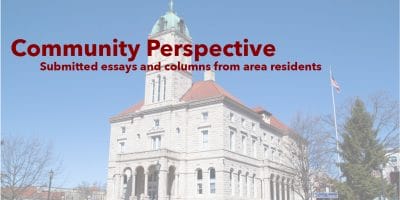A contributed perspectives piece by Chris Hoover Seidel, Harrisonburg-Rockingham Living Wage Campaign Steering Committee Member
Six years ago when On the Road Collaborative Executive Director Brent Holsinger was building an organization of “five volunteers and zero dollars” from scratch, he was searching for a wage level that would honor the work of closing opportunity gaps for students preparing for their futures. He adopted the $12/hour Teachers’ Assistant wage for his part-time staff, mainly consisting of college students. At that time, and since, it has proven to be a competitive wage.
The organization’s full-time staff are salaried workers at a level that promotes sustainability for career work, with 70-75% of the budget directed to personnel costs. Holsinger views competitive salaries as an investment in people who make up the organization. “It starts with our people and taking care of them,” he said. Holsinger is invested in creating a world where “you can do non-profit service work and make a good living. You don’t have to choose or sacrifice to do the work you believe in.”
When Holsinger learned about the Harrisonburg-Rockingham Living Wage Campaign, he was interested in applying. However, he faced a dilemma. The Living Wage Certification levels are Gold: $15/hour, Silver: $12.50/hour, and Aspiring: $11.00/hour and the level must account for all staff. Even though the organization’s salaried workers were making well into the Gold Level, the part-time employees were mostly at the Aspiring Level. Applying at the Aspiring Level would not completely represent the strong commitment to salaried employees.
But Holsinger caught the vision of the campaign – which is to fight for fair wages for all workers, including college students who may not yet be into their careers, but still have bills to pay. Many college students are from ALICE (asset-limited, income-constrained, employed) families, and student debt is at an all-time high. According to the American Association of University Women, black women hold the highest student loan debt. It’s also the case that not all part-time employees are college students. Many ALICE folks hold multiple part-time jobs just to make ends meet.
On the Road Collaborative’s decision to apply to the program was a step toward honoring the labor struggle represented by a more diverse cross-section of the workforce. But Holsinger didn’t stop there. He decided to give a $1/hour wage increase to staff across the board and apply at the Silver Level. This would mean about a 3% increase in their budget. Holsinger noted, “There are huge expenses for society as a whole when we don’t provide a living wage to begin with.”
Certainly, On the Road Collaborative understands this clearly, as nearly 90% of the students they work with come from lower income families. They are on a mission to close gaps between who has access to resources and who does not.
Virginia’s minimum wage has been stuck at the $7.25/hour rate for the past 11 years. Though it is scheduled to increase to $9.50/hour in May 2021, it will still be far from a living wage, especially if factors such as inflation, the consumer price index, and increasing housing costs are taken into consideration.
The Living Wage Campaign’s mission is to support both workers and businesses. As consumers, you can do the following to help: 1. Look for the Living Wage Certified logo on a business’ door, window, or website and support their contribution to a stronger economy. 2. Support small local business growth to make it possible for them to provide a living wage. 3. If you are part of or know of a local business already paying a living wage, encourage them to apply for a free certification today!
To learn more, visit hrlivingwage.org.












